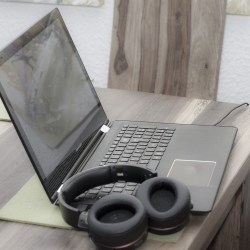To provide the best experiences, we use technologies like cookies to store and/or access device information. Consenting to these technologies will allow us to process data such as browsing behaviour or unique IDs on this site. Not consenting or withdrawing consent, may adversely affect certain features and functions.
The technical storage or access is strictly necessary for the legitimate purpose of enabling the use of a specific service explicitly requested by the subscriber or user, or for the sole purpose of carrying out the transmission of a communication over an electronic communications network.
The technical storage or access is necessary for the legitimate purpose of storing preferences that are not requested by the subscriber or user.
The technical storage or access that is used exclusively for statistical purposes.
The technical storage or access that is used exclusively for anonymous statistical purposes. Without a subpoena, voluntary compliance on the part of your Internet Service Provider, or additional records from a third party, information stored or retrieved for this purpose alone cannot usually be used to identify you.
The technical storage or access is required to create user profiles to send advertising, or to track the user on a website or across several websites for similar marketing purposes.
 Around a half (51 percent) of employees believe job security and flexibility (40 percent) are more important than salary (32 percent) when considering whether to remain at their current employer, according to a new report by UK law firm, Winckworth Sherwood. (more…)
Around a half (51 percent) of employees believe job security and flexibility (40 percent) are more important than salary (32 percent) when considering whether to remain at their current employer, according to a new report by UK law firm, Winckworth Sherwood. (more…)











 During the pandemic, 1 in 4 (25 percent) employees say they’ve had no wellbeing check-ins from their workplace. The research from
During the pandemic, 1 in 4 (25 percent) employees say they’ve had no wellbeing check-ins from their workplace. The research from 
 Human resources research and advisory firm
Human resources research and advisory firm 
 Whether we’re always aware of it or not, body language plays a vital role in face-to-face discourse. In fact, over half of our effective communication comes via body language; that range of non-verbal cues that covers everything from facial expressions and gestures to posture and tone of voice. Meeting in person constantly draws on these signals, and we interpret them by instinct and via conscious analysis to guide the way we interact, frequently to help steer communication towards our goals. But nearly a year of lockdowns, remote working and general separation has challenged these norms, with video-based communication acting as a widespread, imperfect substitute.
Whether we’re always aware of it or not, body language plays a vital role in face-to-face discourse. In fact, over half of our effective communication comes via body language; that range of non-verbal cues that covers everything from facial expressions and gestures to posture and tone of voice. Meeting in person constantly draws on these signals, and we interpret them by instinct and via conscious analysis to guide the way we interact, frequently to help steer communication towards our goals. But nearly a year of lockdowns, remote working and general separation has challenged these norms, with video-based communication acting as a widespread, imperfect substitute. 
 New data from
New data from 
 New
New 
 Years of pathologising offices should have prepared us for the patholigisation of virtual spaces. It seems like months since anybody has come out with that tired old rant about open plan. Certain vociferous and obsessive
Years of pathologising offices should have prepared us for the patholigisation of virtual spaces. It seems like months since anybody has come out with that tired old rant about open plan. Certain vociferous and obsessive 
 The much discussed idea of Zoom fatigue turns out to be a real phenomenon according to new peer reviewed research from Stanford academics. The study published in the American Psychological Association’s journal
The much discussed idea of Zoom fatigue turns out to be a real phenomenon according to new peer reviewed research from Stanford academics. The study published in the American Psychological Association’s journal 
 The feelings of isolation being experienced by employees is the biggest concern IT and cybersecurity teams have around home working, say almost one third (31 percent) of respondents to the latest Twitter poll run by
The feelings of isolation being experienced by employees is the biggest concern IT and cybersecurity teams have around home working, say almost one third (31 percent) of respondents to the latest Twitter poll run by 








March 19, 2021
We can design kindness into working life just as easily as unkindness
by Joanna Suvarna • Comment, Wellbeing, Working culture